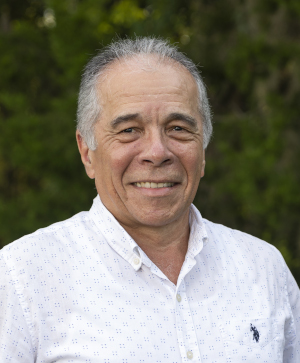Dr. Rosvel Bracho
Associate Research Scientist - Carbon, Greenhouse gases, Water, and Nutrient Dynamics
Research Focus (100%)
The core of the cow-calf production system in Florida is in the central-south region of the State, providing numerous societal and environmental services. Florida is one of the top States in the cow-calf industry in the country. However, producers in this industry face multiple challenges, including low ecosystem productivity, poor soil quality, broad seasonal and interannual environmental fluctuations, economic uncertainties, and societal pressure for water resources and development. The provision of services from these grazinglands relies on their productivity, the foundational ecosystem service. To increase it, native ecosystems are replaced with intensively managed areas, creating a gradient in land use that goes from native, semi-native, improved −unfertilized, and fertilized− pastures, and to a lesser extent, silvopasture, with grass wetlands embedded within this gradient. However, this is done with limited information on land productivity or the trade-offs emerging from management intensification. Pressure on grazinglands can lead to soil impoverishment, reduction in productivity, and diminished service provisions.
In this context:
- How does productivity change across this grazinglands management intensification in the landscape?
- How is it affected by seasonal and interannual climatic fluctuation?
- What are the environmental and economic trade-offs emerging from this management intensification?
Trades-offs may include, but are not limited to, modified productivity, soil fertility and health, water use efficiency, water yield and quality, and economic revenue modifications.
Answering these research questions will generate data, which will provide stakeholders with the information needed to make management decisions, allowing them to weigh the costs and benefits of land intensification.
Currently, with support from the Long-term Agroecosystem Research (LTAR), we are working on:
- Evaluating the effects of prescribed fire and mechanical brush control on biomass and forage productivity and quality in native rangelands, as part of the common experiment within the LTAR network.
- Assessing from a native rangeland, an improved pasture, and a silvopasture, three sites represented in the gradient intensification management:
- Ecosystem productivity
- Total carbon dynamics (CO2 + CH4)
- Evapotranspiration, water use efficiency (WUE).
- Soil greenhouse gas emissions (CO2, CH4 & N2O).
A combination of eddy covariance and static chambers are used for ecosystems and soil assessments.
-
Education
- MS, Biology-Ecology, Venezuelan Institute of Scientific Research, 1990
- PhD, Biology-Ecology, Venezuelan Institute of Scientific Research, 2000
-
Employment
- Associate Research Scientist, Range Cattle Research and Education Center, Ona, FL
University of Florida, 2018 to present.
- Associate Research Scientist, Range Cattle Research and Education Center, Ona, FL
- Publications

